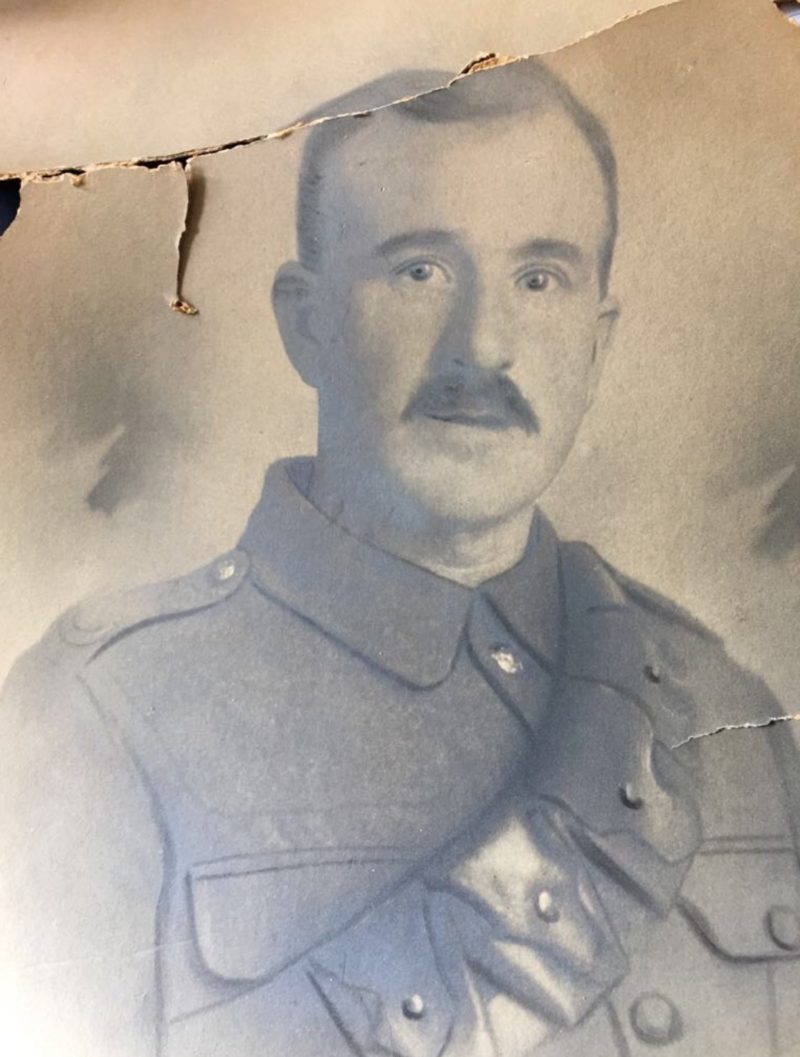This Sunday will mark the centenary of the signing of the Armistice that ended the First World War. Events will be held around the country, including a service of remembrance at Westminster Abbey at which BGS pupil Jasleen has been given the honour of reading a prayer – you can read more about this amazing honour here.
On Monday, Bristol Grammar School pupils, staff and guests will gather in the Great Hall for our own Remembrance Service, to remember and honour all those who have sacrificed themselves to secure and protect our freedom. There are now no veterans of the First World War left alive to share their memories of the war with us but for many their stories live on through their families. In Thursday’s Whole School Assembly Mr Bennett told the story of his great-grandfather, one of the more than 700,000 British service men who lost their lives:
“100 years ago last Sunday, 4 November 1918 at 0545, three sections of the 218th field company, Royal Engineers, supported by the Highland Light Infantry, led an assault on the Sambre Oise canal near a small town called Ors, east of Cambrai in France.
“They were carrying makeshift pontoon bridge components to be assembled under shell, machine gun and rifle fire, to allow soldiers from the 2nd Manchesters to cross the canal and take position on the eastern bank.
“Among the men carrying the bridging sections was sapper E.W. Bennett (242207), my great-grandfather.
“The assault, though ultimately successful, was extremely costly and over 1,100 men were lost that morning. Of the 42 Royal Engineers tasked with building the crossing, thirty became casualties, with twelve of them being killed.
“Sapper Bennett was among those men who lost their lives, and he and his fellows are buried in the British cemetery on the banks of the canal they fought to take.
“Those thirty men were the last casualties the Royal Engineers suffered in 1918. The armistice that brought the Great War to an end was signed one week later.
“Earlier this year my brother, father and I travelled to the fields of Belgium and Northern France and walked along the banks of the Sambre, where we laid a family photograph at Edward's grave. It seemed a fitting way to say thank you and show that, a century later, his family has continued and that we remember him.
“Coincidentally, a young Lieutenant in the Manchesters was also killed that morning, leading his section in the same assault on that short stretch of the canal. His name was Wilfred Owen.
“As a schoolboy, here at BGS, I studied Owen and came to know him as one of the greatest war poets alongside Sassoon, Brooke and Graves. I didn't know at the time that he fell alongside a member of my family in that final week of fighting.
“In his poem Strange meeting, written earlier that same year, Owen imagines a scene where two dead soldiers stand in Hell and talk together amidst the carnage. Its closing lines seem fitting to read today.
“I am the enemy you killed, my friend.
I knew you in this dark: for so you frowned
Yesterday through me as you jabbed and killed.
I parried; but my hands were loath and cold.
Let us sleep now. . . .”
“On Monday we hold our annual Remembrance Day Service here in the Great Hall, all the more important as it marks 100 years since the end of the First World War. I wonder what history your own families might bring to that occasion. Regardless, we will all bring calm, dignity, and respect, as we remember all those who laid down their lives for us.”
Mr Bennett
 E.W. Bennett
E.W. Bennett
